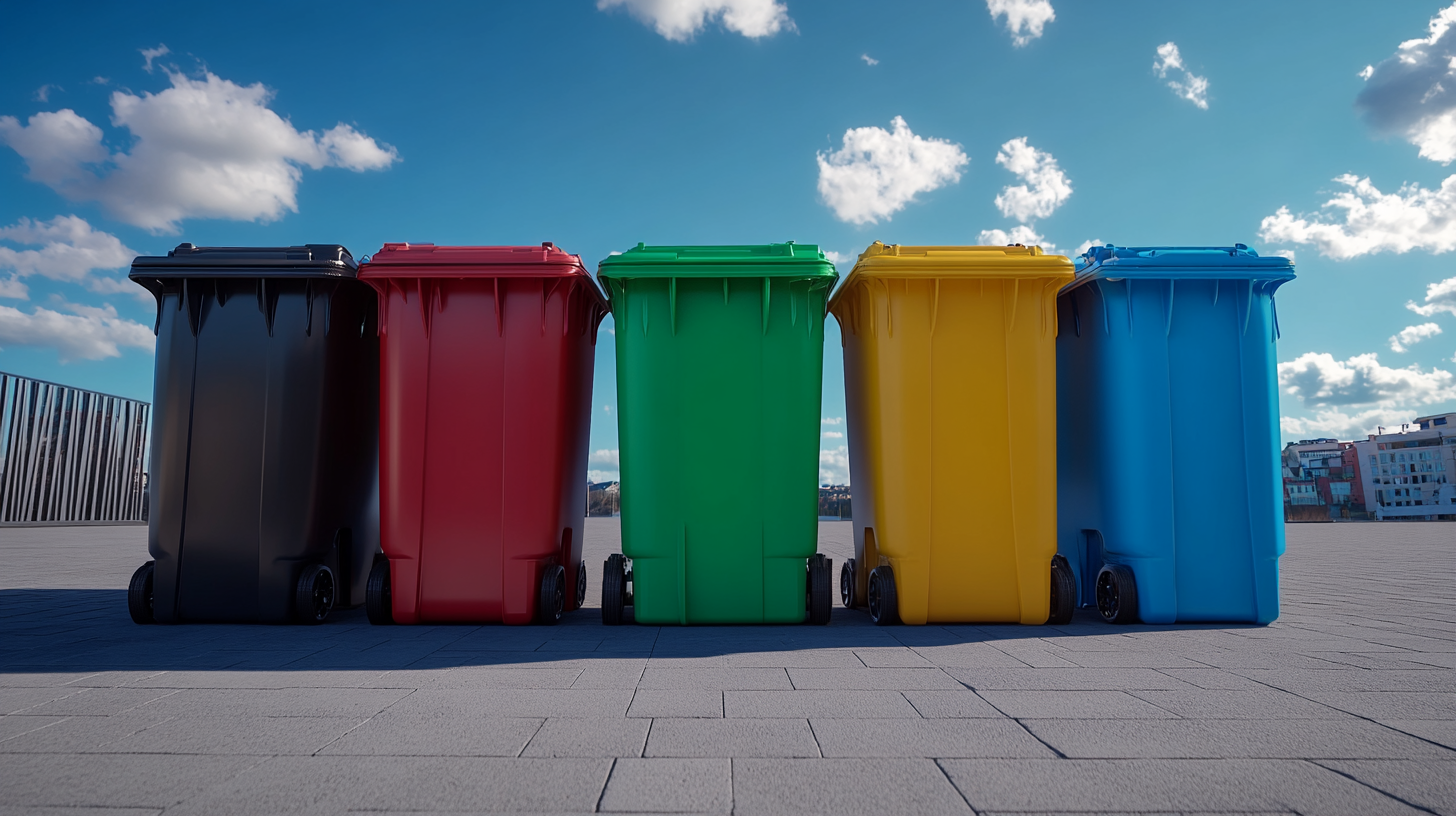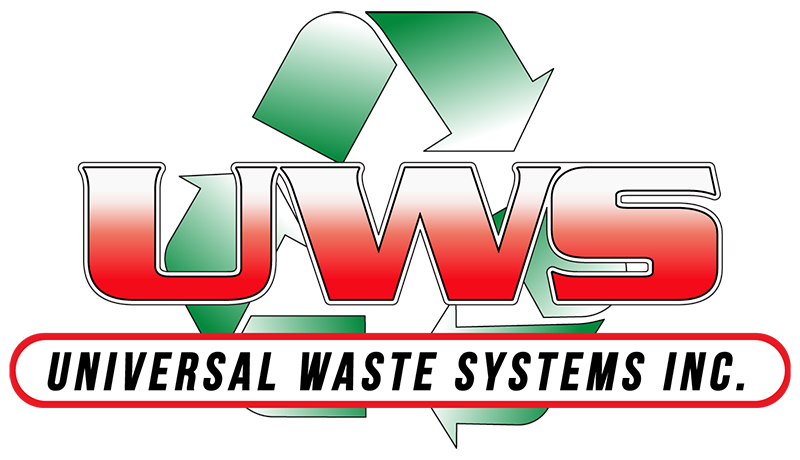Blog
The Ultimate Handbook for Global Buyers: Mastering Trash Disposal Solutions
In today's rapidly urbanizing world, efficient trash disposal has become a pivotal concern for global buyers looking to implement sustainable practices. According to the World Bank, the world generated approximately 2.01 billion tonnes of municipal solid waste in 2018, with projections indicating that this figure could increase to 3.40 billion tonnes by 2050. This staggering amount underscores the urgent need for innovative trash disposal solutions that not only mitigate environmental impact but also enhance waste management efficiency. As cities expand and populations grow, the strategies employed in trash disposal must evolve to meet these increasing challenges.
For global buyers, navigating the complexities of waste management involves understanding the diverse solutions available in the market. From advanced recycling technologies to waste-to-energy facilities, the options can be overwhelming. Research by the Ellen MacArthur Foundation highlights that transitioning to a circular economy could save businesses and governments a staggering $1 trillion annually by 2025, demonstrating the financial benefits of optimized trash disposal. This handbook aims to equip global buyers with the knowledge and tools necessary to master trash disposal solutions, ensuring they can make informed, sustainable choices that benefit both their organizations and the environment.

Understanding the Importance of Effective Trash Disposal for Global Buyers
In today's global market, understanding effective trash disposal solutions is paramount for buyers aiming to streamline their operations while contributing positively to the environment. Municipal solid waste (MSW) management remains a significant challenge, particularly in developing regions across Asia and Africa. Recent studies highlight that from 2013 to 2023, these countries have encountered increasing difficulties in managing waste due to rapid urbanization and inadequate infrastructure. This situation not only threatens public health but also stifles economic growth, underscoring the need for innovative and effective trash disposal strategies. The recycling landscape in more developed regions, such as the United States, further complicates the global waste management narrative. With Americans generating an average of 4.51 pounds of trash per day by 2017, the question arises: how much of this waste is actually recycled? Reports indicate that only a minute fraction of plastics find their way back into the recycling stream, revealing a dire need for reform in waste management practices. Additionally, the informal waste sector in countries like Indonesia plays a critical role in waste collection and recycling, yet their contributions are often overlooked. Recognizing and empowering these informal workers can lead to improved efficiencies in waste management systems, benefitting local economies and the environment alike. For global buyers, investing in sustainable waste disposal solutions is not merely an ethical choice but a strategic imperative. Leveraging data from comprehensive reviews and reports can guide decision-making, ensuring that businesses not only comply with regulations but also actively participate in the creation of a circular economy. Understanding the intricacies of trash disposal and recycling is essential for those looking to navigate the complexities of waste management in our interconnected world.

Types of Trash Disposal Solutions Available Worldwide
The global challenge of trash disposal has attracted significant attention, particularly as countries grapple with the consequences of unsustainable waste management. With the United States generating over 12% of the world's trash despite housing just 4% of the global population, effective disposal solutions are more critical than ever. In 2021, more than 91% of plastic waste in the U.S. ended up in landfills, highlighting a concerning trend in waste management and the persistent issue of marine pollution as billions of pounds of trash enter oceans annually.
Various regions are adopting innovative trash disposal solutions to mitigate these waste management challenges. For instance, successful recycling strategies in cities around the globe showcase transformative approaches. Countries like Sweden and Germany have implemented advanced waste sorting techniques that ensure higher recycling rates, paired with educational initiatives that encourage citizen participation. In contrast, developing regions in Asia and Africa face unique municipal solid waste management (MSW) challenges, often struggling with insufficient infrastructure and public awareness that can exacerbate the waste crisis.
Emerging technologies are also making waves in the waste management landscape. The smart trash bin market, valued at approximately USD 64.36 million in 2022, demonstrates a promising future with a projected growth rate of 12.4% annually through 2030. Smart bins equipped with sensors can optimize waste collection routes, reduce operational costs, and even enhance recycling efforts by distinguishing between waste types. These advancements signal a shift towards more efficient and sustainable waste management practices globally, paving the way for significant environmental benefits as communities work together to combat the pressing issue of trash disposal.

Evaluating Eco-Friendly Trash Disposal Options for Sustainable Living
In today’s world, sustainable living has become a paramount concern for consumers and businesses alike. Evaluating eco-friendly trash disposal options is a vital step toward achieving a greener lifestyle. By understanding the impact of our waste management choices, we can make informed decisions that contribute to a healthier planet.
One of the most effective eco-friendly waste disposal methods is composting. This process not only reduces the amount of organic waste sent to landfills but also transforms food scraps and yard waste into nutrient-rich compost. Home composting systems are easy to implement and can be adapted to suit various living situations, from apartments to larger homes. By composting, individuals can contribute to soil health and reduce methane emissions associated with traditional waste disposal.
Another viable option is recycling, which involves breaking down materials like paper, plastic, and metals into reusable resources. Establishing a strong recycling routine is crucial for minimizing waste. Many communities offer recycling programs that simplify the process and ensure that recyclable items are properly processed. It's essential to stay informed about what can and cannot be recycled, as contamination can lead to entire loads being sent to landfills.
Moreover, choosing products with minimal packaging and supporting companies that prioritize sustainability can greatly influence waste generation. Opting for bulk purchasing or reusable containers can significantly decrease the volume of waste produced. By making conscious choices about what we buy and how we dispose of it, we empower ourselves and our communities to foster a more sustainable future.

Navigating Legal Regulations and Compliance in Waste Management
Navigating the complex landscape of legal regulations and compliance in waste management is crucial for global buyers looking to optimize their trash disposal solutions. Different countries impose varied waste management laws, reflecting their unique environmental policies and societal attitudes. Understanding these regulations is not just about compliance; it is about fostering responsible practices that contribute to sustainable development.
As global buyers, it is essential to stay informed about local and international regulations affecting waste disposal. For instance, compliance with the Basel Convention, which governs the transboundary movement of hazardous waste, is crucial for companies engaged in international trade. Furthermore, many nations have stringent laws on electronic waste disposal, necessitating that businesses stay ahead of regulations to avoid hefty fines and reputational damage.
Additionally, companies must consider the implications of emerging trends in waste management legislation, such as plastic bans and recycling mandates. This means establishing robust compliance programs that align with legal requirements while also promoting environmentally friendly practices. By proactively engaging with legal frameworks and collaborating with local waste management authorities, global buyers can ensure they not only meet legal obligations but also lead in corporate social responsibility.
Best Practices for Implementing Efficient Disposal Systems in Various Regions
Efficient waste disposal solutions are vital for global buyers seeking to navigate the complexities of trash management in diverse regions. According to a report by the World Bank, global waste generation is expected to increase by 70% by 2050, reaching 3.4 billion tons annually. This escalating concern emphasizes the need for region-specific strategies that address local waste characteristics, regulatory frameworks, and technological capabilities.
In North America, for instance, the emphasis is on recycling and composting initiatives. The Environmental Protection Agency (EPA) reported that in 2018, the recycling rate was 35% for municipal solid waste, highlighting the opportunity for improvement through innovative disposal systems and community engagement. Buyers in this region should consider investing in advanced sorting technologies and public awareness campaigns to enhance recycling efforts effectively.
Conversely, in developing regions, like Southeast Asia, the challenges are often driven by inadequate infrastructure and lack of formal waste management systems. The United Nations Environment Programme (UNEP) states that at least 50% of the population in many developing countries lacks access to proper waste disposal services. Global buyers must prioritize investments in affordable and scalable waste management solutions, such as mobile collection units and public-private partnerships, to foster sustainable practices and reduce the environmental footprint in these areas.
Request a Quote
Fill out the form below and one of our specialists will contact you to discuss your questions and needs.

